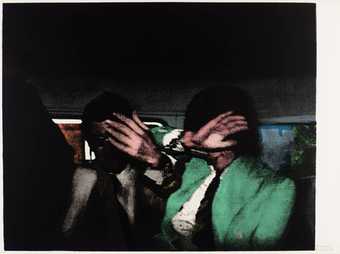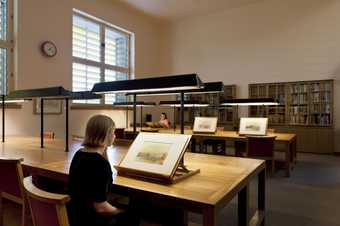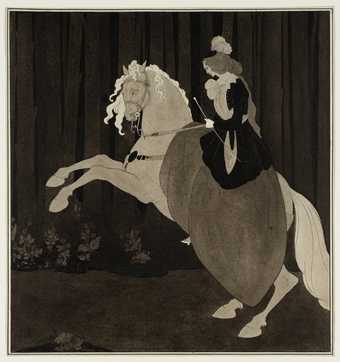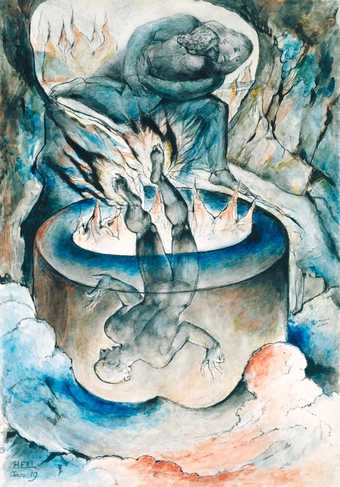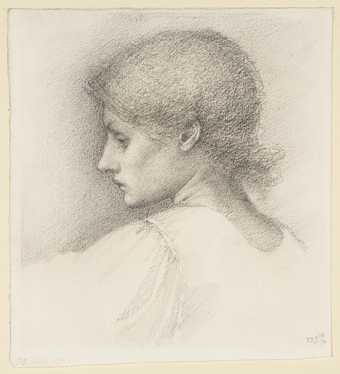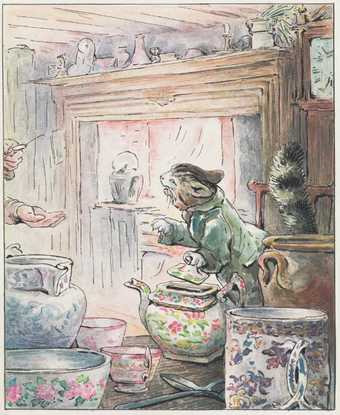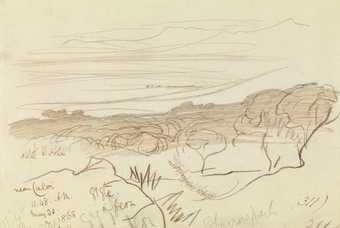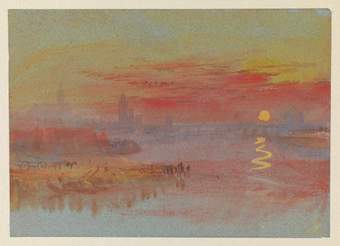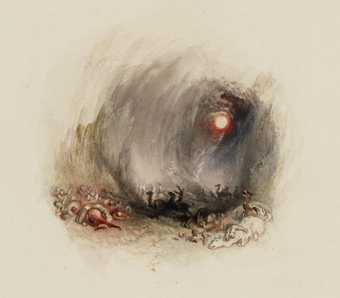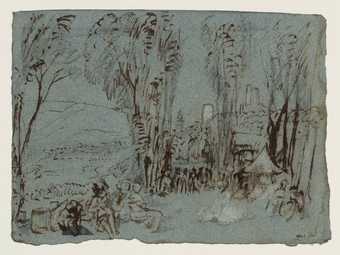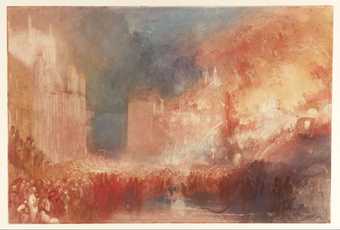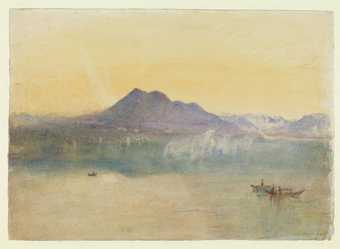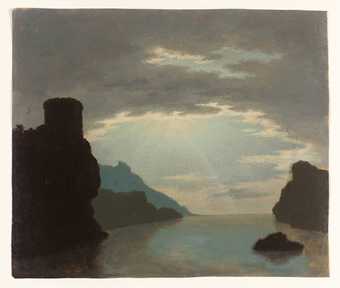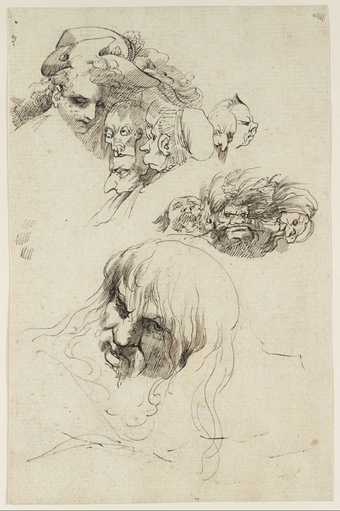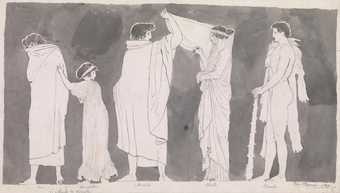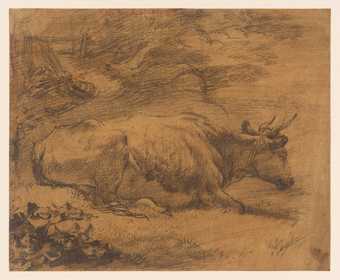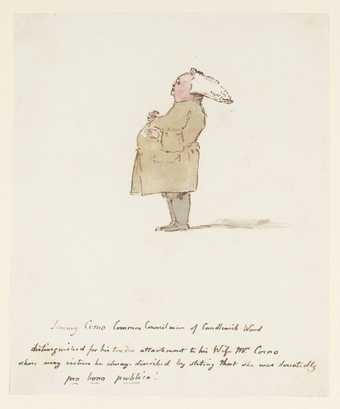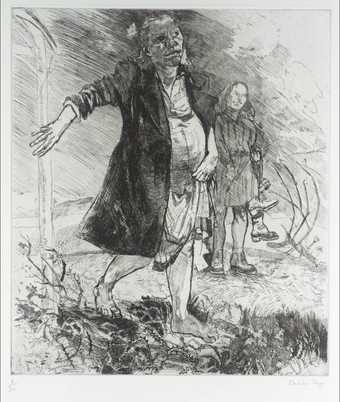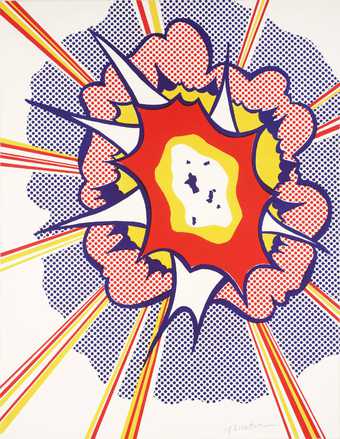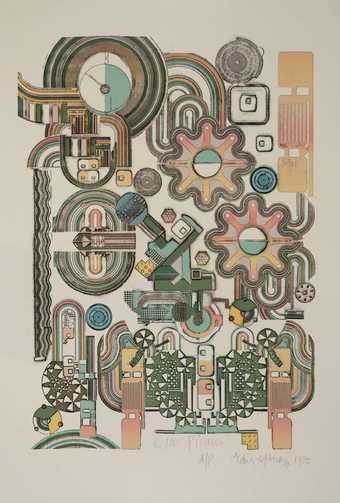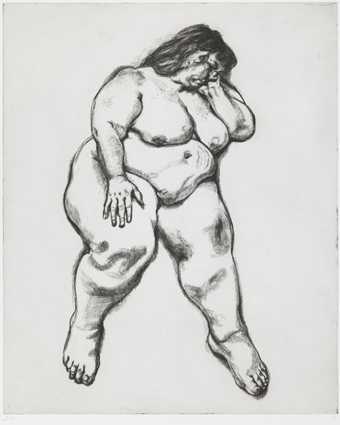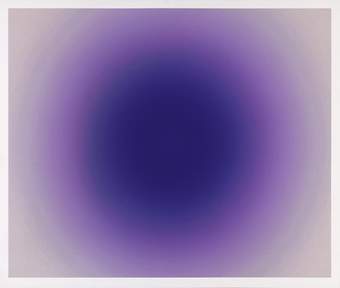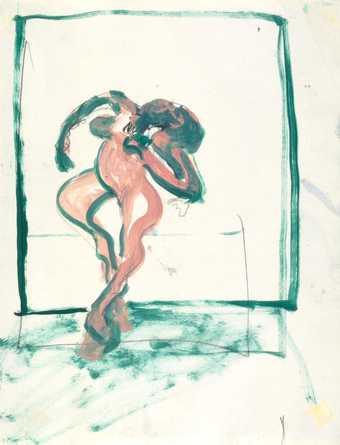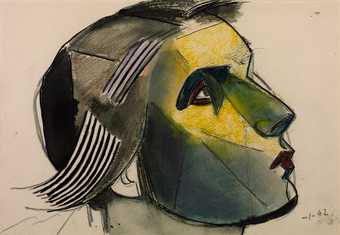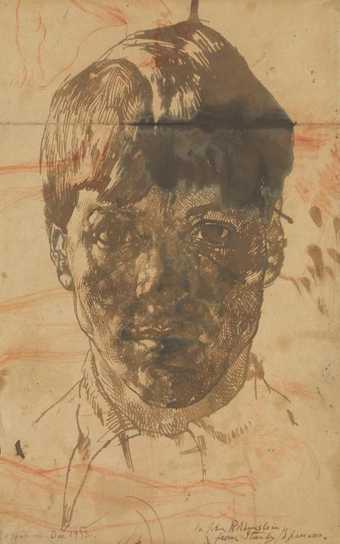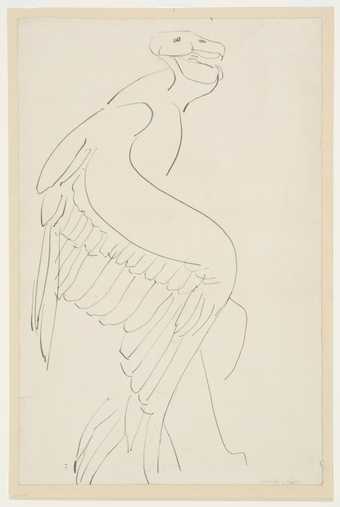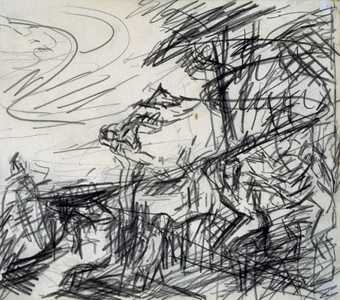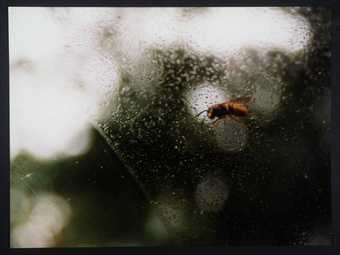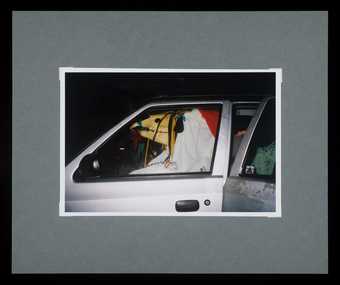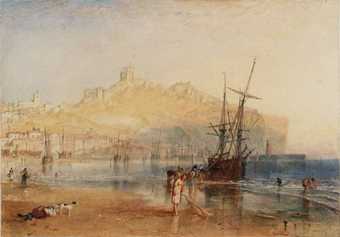All visitors are welcome to access Tate's holdings of prints, drawings and watercolours that are not on display elsewhere, at the Prints and Drawings Rooms at Tate Britain.
Visitors are able to:
- See unframed works ranging from Turner to modern and contemporary international artists in detail
- Engage with the collection in an intimate study room environment
- Visit for pleasure or for academic study
Please visit the Prints and Drawings Room page to find out how to arrange your visit.
OUR HOLDINGS
The Holdings are arranged into the following four collections ranging from Turner to modern and contemporary international artists.
Historic British art
Tate has a fine collection of British School art on paper spanning the sixteenth to the late nineteenth centuries. This rich and varied collection includes:
- satirical prints by William Hogarth
- visionary prints and watercolours by William Blake and Samuel Palmer
- preparatory works by the Pre-Raphaelite artists Dante Gabriel Rossetti and Sir Edward Coley Burne-Jones
- exquisite watercolour illustrations by Helen Beatrix Potter for her book The Tailor of Gloucester.
Like the Oppé Collection and Turner Bequest the Historic British collection is also rich in landscape watercolours and engravings, featuring the works of Thomas Girtin, John Sell Cotman and Peter De Wint.

